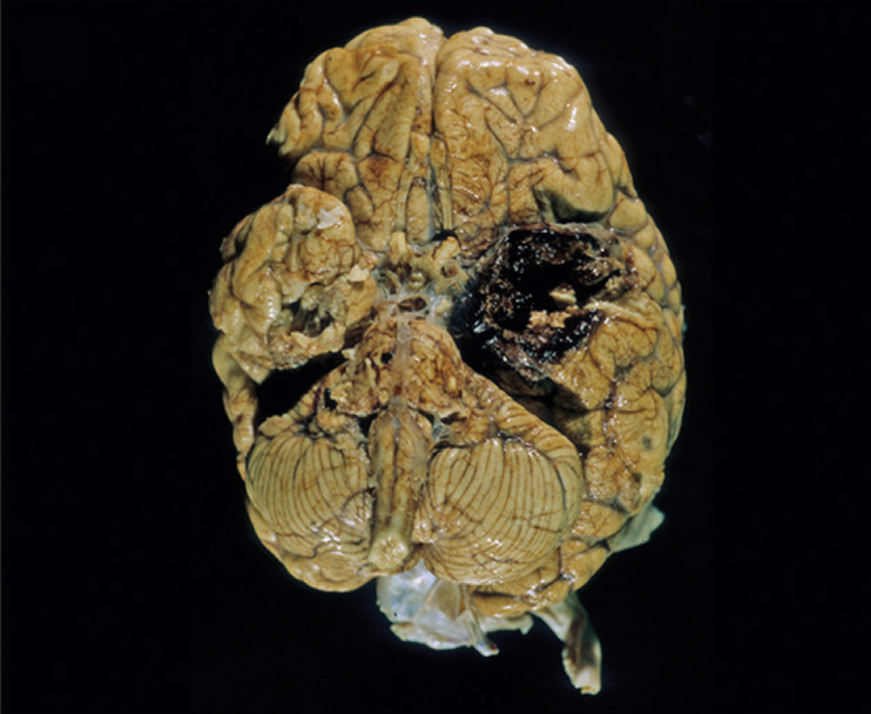encephalitis /ensef′əlī″tis/ pl. encephalitides [Gk, enkephalos, brain, itis, inflammation] , an inflammatory condition of the brain. The cause is usually an arbovirus infection transmitted by the bite of an infected mosquito, but it may be the result of lead or other poisoning or of hemorrhage. Certain protozoal infections such as toxoplasmosis can cause encephalitis in immunocompromised patients. Postinfectious encephalitis occurs as a complication of another infection, such as chickenpox, influenza, or measles, or after smallpox vaccination. Compare meningitis. See also equine encephalitis. ▪ OBSERVATIONS: The condition is characterized by headache, neck pain, fever, nausea, and vomiting. Neurological disturbances, including seizures, personality change, irritability, lethargy, paralysis, weakness, and coma, may occur. ▪ INTERVENTIONS: Medical management will depend on the cause. Nursing care during the acute period will focus on lowering fever, providing hydration, and monitoring the patient for increased intracranial pressure and seizures. Complications associated with encephalitis can be significant. The health care team must be vigilant and coordinated to minimize these complications. ▪ PATIENT CARE CONSIDERATIONS: The outcome depends on the cause, the age and condition of the person, and the extent of inflammation. Severe inflammation with destruction of nerve tissue may result in a seizure disorder, loss of a special sense or other permanent neurological problem, or death. Usually the inflammation involves the spinal cord and brain; hence, in most cases a more accurate term is encephalomyelitis.

